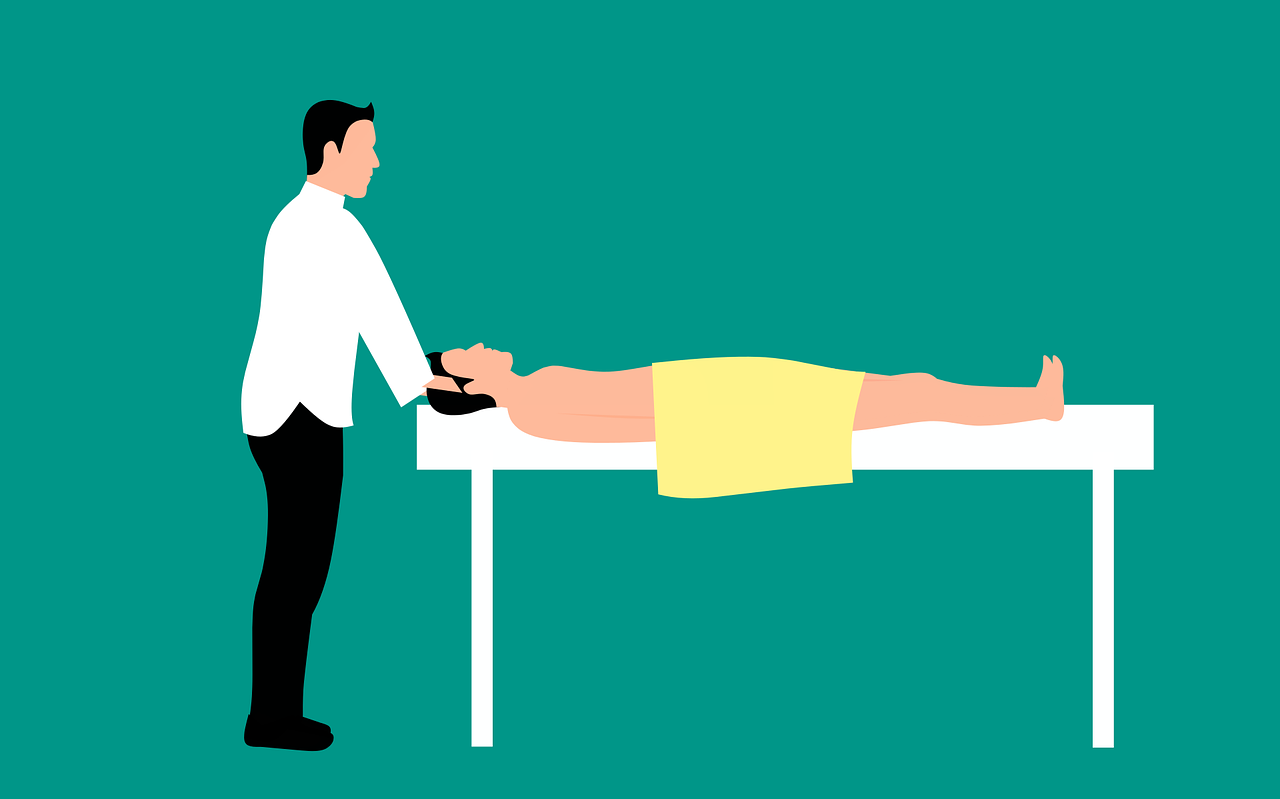
Imagine waking up in the morning, ready to start a brand new day, only to be greeted by a sharp, nagging pain in your neck. It’s a frustrating and uncomfortable experience that many people have unfortunately experienced. But what exactly causes this neck pain upon waking? In this article, we will explore the common culprits behind this morning discomfort and provide some helpful tips on how to alleviate it. So, if you’ve ever wondered why your neck hurts when you wake up, keep reading for answers and solutions to ensure a pain-free morning routine.
Causes of Neck Pain Upon Waking
Waking up with neck pain can be a frustrating and uncomfortable experience. The neck is a crucial part of our bodies, supporting the weight of our head and allowing for movement in various directions. Understanding the causes of neck pain upon waking can help us identify the necessary steps to alleviate this discomfort and promote a restful sleep. In this article, we will explore several common factors that contribute to neck pain after waking up and discuss strategies to prevent and manage this issue.

Sleeping Position
The position in which you sleep plays a significant role in the development of neck pain. Certain sleeping positions can strain the neck muscles and misalign the spine, leading to discomfort upon waking. It is essential to be aware of your preferred sleeping position and consider adopting a more supportive posture.
The Impact of Sleeping Position on Neck Pain
Sleeping on your stomach is known to be one of the worst positions for neck health. This position forces the neck to rotate to the side and places strain on the muscles and joints. Similarly, sleeping on your back without proper neck support can lead to excess curvature of the spine and neck stiffness. The ideal sleeping position for neck pain prevention is sleeping on your side with a supportive pillow.
Common Problematic Sleeping Positions
Apart from stomach sleeping, side sleeping without proper pillow support can also contribute to neck pain. When the head and neck are not adequately aligned with the spine, it can cause muscle strain and discomfort. Additionally, sleeping on your back without using a pillow or with an unsupportive pillow can result in unnatural positions of the neck, leading to morning neck pain.
Recommended Sleeping Positions for Neck Pain
If you are experiencing neck pain upon waking, consider adjusting your sleeping position to alleviate discomfort. Sleeping on your side with a supportive pillow that keeps your head and neck aligned with your spine is generally recommended. Placing a small pillow or rolled-up towel under your neck can help maintain proper alignment and relieve strain. If you prefer sleeping on your back, choose a pillow designed specifically to support the natural curvature of your neck.
Pillow Choice
The type of pillow you use can significantly impact the health of your neck. A suitable pillow should provide adequate support to the neck and promote proper alignment of the spine. Understanding the relation between pillow choice and neck pain can guide you in selecting the ideal pillow for your needs.
Importance of Pillow Choice for Neck Health
The right pillow can make a world of difference when it comes to neck pain prevention. A pillow that offers the right combination of support and comfort can help maintain proper alignment of the spine and relieve strain on the neck muscles. On the other hand, using an unsuitable pillow can exacerbate existing neck pain or contribute to the development of new discomfort.
The Relation Between Pillow and Neck Pain
Using the wrong type of pillow or a pillow that has lost its supportiveness can lead to poor neck alignment, resulting in neck pain. For example, a pillow that is too flat or too firm can cause the head and neck to tilt at unnatural angles, straining the muscles and leading to morning stiffness. It is crucial to assess your pillow’s condition regularly and replace it if necessary to ensure optimal neck support.
Ideal Pillow Types for Different Sleepers
The ideal pillow type varies depending on your sleeping position and personal preferences. For side sleepers, a firm or medium-firm pillow that fills the gap between the head and the shoulder is recommended. This type of pillow helps maintain proper spinal alignment and prevents the head from tilting downwards or sideways. Back sleepers should opt for a pillow with a contour or memory foam design to support the natural curve of the neck. Stomach sleepers should consider using a thin pillow or even sleeping without one to minimize strain on the neck.
Mattress Quality
While pillow choice is crucial, the quality of your mattress also affects the health of your neck. An inadequate mattress can disrupt the natural alignment of the spine and contribute to morning neck pain. Understanding the significance of mattress quality in neck pain can guide you in selecting the right mattress for your needs.
The Significance of Mattress Quality in Neck Pain
A high-quality mattress that caters to proper spinal alignment is vital for neck pain prevention. When the mattress is too firm or too soft, it can cause the spine to be misaligned during sleep, leading to muscle strain and discomfort. Investing in a supportive mattress ensures that your body, including your neck, is properly supported throughout the night.
Effect of Mattress Firmness on Neck Alignment
The firmness of your mattress determines the level of support it provides for your body. A mattress that is too firm may create pressure points on certain parts of your body, including the neck, leading to pain and stiffness. Conversely, a mattress that is too soft may cause the body to sink too deeply, causing misalignment of the spine. It is essential to find a mattress that offers a balanced level of firmness to support your neck and spine appropriately.
Choosing the Right Mattress for Neck Pain Relief
When selecting a mattress to alleviate or prevent neck pain, consider one that provides adequate support and comfort. Medium-firm mattresses are generally recommended for most individuals as they offer a balance between support and cushioning. Memory foam or latex mattresses are popular choices as they conform to the body’s shape, providing optimal pressure relief and spinal alignment. It is advisable to test different mattress options and consult with healthcare professionals if needed to find the right fit for your specific needs.
Muscle Strain
Muscle strain is a common cause of neck pain upon waking. Activities or habits that strain the neck muscles during sleep can leave you feeling sore and uncomfortable in the morning. Understanding the role of muscle strain in neck pain can help you identify and address the factors contributing to this issue.
The Role of Muscle Strain in Neck Pain
Muscle strain occurs when the muscles and tendons in the neck are stretched or damaged due to excessive or repetitive movements, poor posture, or sudden movements during sleep. This strain can lead to neck pain, stiffness, and limited range of motion. Identifying and addressing the underlying causes of muscle strain is essential for managing neck pain.
Common Causes of Muscle Strain
Muscle strain can occur as a result of various factors. Poor sleeping posture, such as sleeping with the neck in an awkward position or using an unsupportive pillow, can strain the neck muscles. Sudden movements during sleep, such as jerking movements or rolling off the bed, can also lead to muscle strain. Additionally, activities during the day that strain the neck, such as heavy lifting or repetitive movements, can contribute to neck pain upon waking.
Preventing and Treating Muscle Strain-Related Neck Pain
To prevent muscle strain-related neck pain, it is important to prioritize proper sleeping posture and support. Maintaining a neutral neck position during sleep and using a supportive pillow can help minimize strain on the muscles. Engaging in regular neck stretches and exercises can also strengthen the neck muscles and reduce the risk of strain. If muscle strain-related neck pain persists or worsens, it is advisable to consult a healthcare professional for diagnosis and appropriate treatment options.

Posture
Maintaining good posture, both during the day and while sleeping, is crucial for neck health. Poor posture habits can contribute to neck pain upon waking and affect the overall well-being of the neck and spine. Understanding the connection between poor posture and neck pain can empower you to make positive changes for your neck health.
The Connection Between Poor Posture and Neck Pain
Poor posture puts excessive stress on the muscles, joints, and ligaments of the neck, leading to pain and discomfort. When the neck is not properly aligned with the spine, it can result in muscle imbalances and strain. This misalignment during sleep can contribute to morning neck pain. Improving posture both during sleep and throughout the day can alleviate neck pain and prevent its recurrence.
Common Poor Posture Habits
Several common poor posture habits can contribute to neck pain upon waking. Slouching or hunching forward during the day puts strain on the neck and upper back muscles. This poor posture can carry on during sleep, leading to misalignment of the neck and spine. Additionally, using an unsupportive pillow or sleeping in positions that force the neck into unnatural angles can worsen poor posture habits and result in morning neck pain.
Improving Posture for Neck Pain Prevention
To improve posture and prevent neck pain, it is essential to be mindful of your body’s alignment throughout the day and during sleep. Maintain an upright posture while sitting or standing, keeping your spine aligned and your shoulders relaxed. When sleeping, choose a supportive pillow and ensure that your neck and spine are properly aligned. Engaging in exercises and stretches that target the neck and upper back can help strengthen the muscles and promote better posture. If you are unsure about proper posture or need guidance, consider consulting with a healthcare professional.
Sleeping Environment
Creating a comfortable and conducive sleeping environment can significantly impact neck health. The temperature, humidity, noise level, and lighting in your bedroom can influence the quality of your sleep and the well-being of your neck. Understanding the impact of the sleeping environment on neck pain can help you make the necessary adjustments for a restful and pain-free sleep.
Impact of Sleeping Environment on Neck Pain
An uncomfortable sleeping environment can disrupt your sleep and result in increased neck pain upon waking. Factors such as an excessively hot or cold room, excessive noise or light, and poor air quality can affect the quality of your sleep and lead to tension and discomfort in the neck.
Temperature and Humidity Effects on Neck Health
Extreme temperatures and humidity levels in your bedroom can impact your neck health. Sleeping in a room that is too hot or too cold can cause muscle tension and stiffness in the neck. Similarly, excessively dry or humid air can irritate the respiratory system and affect the overall comfort of your sleep, potentially leading to neck pain.
Creating a Comfortable Sleeping Environment for Neck Pain Relief
To create a comfortable sleeping environment for neck pain relief, consider adjusting the temperature and humidity levels in your bedroom to suit your preferences. Keep the room at a moderate temperature that allows you to sleep comfortably. Use curtains or blinds to block out excessive light, and reduce noise levels by using earplugs or white noise machines if necessary. Ensuring good air quality in your bedroom by keeping it well-ventilated can also promote a restful sleep and alleviate neck discomfort.
Underlying Medical Conditions
Neck pain upon waking can also be a symptom of underlying medical conditions. Certain neck-related medical conditions can cause discomfort and stiffness, making it important to identify and address these conditions to find appropriate treatment and relief.
Medical Conditions That Can Cause Neck Pain
Several medical conditions can contribute to neck pain, including cervical spondylosis, herniated discs, osteoarthritis, and fibromyalgia. These conditions can lead to inflammation, nerve compression, or degeneration of the cervical spine, resulting in neck pain upon waking. It is crucial to consult with a healthcare professional if you suspect an underlying medical condition as the cause of your neck pain.
Common Neck Related Medical Conditions
Cervical spondylosis, also known as degenerative neck disease, is a common age-related condition in which the discs and vertebrae of the cervical spine degenerate. Herniated discs, on the other hand, occur when the soft center of a spinal disc protrudes through the tougher outer layer, potentially compressing nearby nerves. Osteoarthritis is a condition characterized by the breakdown of cartilage in joints, including the neck joints, leading to pain and stiffness. Fibromyalgia is a chronic condition characterized by widespread pain, including the neck area.
Diagnosing and Treating Underlying Medical Conditions
If you suspect an underlying medical condition as the cause of your neck pain upon waking, it is essential to seek professional medical advice for proper diagnosis and treatment. A healthcare professional will consider your symptoms, perform necessary tests, and recommend appropriate treatment options based on the underlying condition. Treatment may include medication, physical therapy, lifestyle modifications, or surgical interventions, depending on the diagnosis.

Stress and Tension
Stress and tension can manifest in various ways, including neck pain. The neck muscles are particularly susceptible to stress and tension buildup, often resulting in discomfort upon waking. Understanding the link between stress, tension, and neck pain can help you implement effective stress management techniques to alleviate this issue.
The Link Between Stress, Tension, and Neck Pain
Stress and tension can cause muscles throughout the body to tighten, including those in the neck and shoulders. Persistent stress can lead to chronic muscle tension, resulting in neck pain and stiffness. The relationship between stress, tension, and neck pain is a common one, and addressing stress levels can significantly improve neck health.
Effects of Stress and Tension on Neck Muscles
Stress and tension induce a physical response in the body, triggering the release of stress hormones and causing muscle tightening. When the neck muscles are continually tense, it can lead to muscle imbalances, restricted blood flow, and reduced range of motion. These effects contribute to neck pain upon waking and can become chronic if stress and tension are not effectively managed.
Managing Stress and Tension for Neck Pain Management
To manage stress and tension and alleviate neck pain, implementing stress management techniques is essential. Engaging in relaxation techniques such as deep breathing exercises, meditation, or yoga can help reduce stress levels and promote muscle relaxation. Regular exercise, sufficient sleep, and maintaining a balanced lifestyle are also effective strategies for managing stress. If stress and tension persist or become overwhelming, seeking counseling or therapy can provide additional support in managing these factors and reducing neck pain.
Lack of Physical Activity
A lack of physical activity can contribute to neck pain upon waking. Physical inactivity can weaken the muscles supporting the neck, making them more prone to strain and discomfort. Understanding the importance of physical activity for neck health can motivate you to incorporate regular exercise into your routine.
The Role of Physical Activity in Neck Pain Prevention
Regular physical activity strengthens the muscles supporting the neck and helps maintain overall body strength and flexibility. Engaging in exercises that target the neck, upper back, and shoulder muscles can enhance posture, reduce muscle imbalances, and prevent neck pain. Incorporating physical activity into your routine also promotes blood circulation, which aids in the delivery of nutrients and oxygen to the neck muscles, supporting their health and function.
Recommended Exercises for Neck Pain Prevention
Exercises that focus on stretching and strengthening the neck and upper back muscles can help prevent neck pain. Gentle neck stretches, such as neck rotations and side bends, can relieve tension and improve flexibility. Strengthening exercises, including shoulder shrugs and chin tucks, can help build muscle support for the neck. It is important to perform these exercises correctly and consult with a healthcare professional or qualified trainer to ensure proper form and safety.
Incorporating Physical Activity into Daily Life
Incorporating physical activity into your daily routine doesn’t have to be complicated or time-consuming. Simple lifestyle changes, such as taking regular breaks from sitting, walking or cycling instead of driving short distances, or participating in recreational activities, can contribute to overall physical fitness and neck health. Aim for at least 30 minutes of moderate-intensity exercise most days of the week to enjoy the benefits of regular physical activity.
Inadequate Neck Support
Using inadequate neck support during sleep can contribute to morning neck pain. Without proper support, the neck can become strained and misaligned, leading to discomfort upon waking. Understanding the importance of proper neck support can guide you in finding the suitable neck support for a restful sleep.
Importance of Proper Neck Support
Proper neck support is vital to maintain the natural alignment of the spine and prevent excessive strain on the neck muscles. Adequate support provides a neutral position for the neck during sleep, helping to alleviate stress and tension. By ensuring proper neck support, you can reduce the risk of waking up with neck pain and promote overall neck health.
Consequences of Inadequate Neck Support
Sleeping without proper neck support or using pillows that have lost their shape can result in poor neck alignment and strained muscles. Inadequate support can lead to neck stiffness, pain, and limited range of motion upon waking. Over time, the lack of proper neck support during sleep can contribute to chronic neck pain and other musculoskeletal issues.
Finding Suitable Neck Support for a Restful Sleep
To find suitable neck support for a restful sleep, consider investing in a pillow that is specifically designed to provide optimal support for the neck. Pillows made of memory foam or contour pillows that conform to the shape of your head and neck can be beneficial. Additionally, adjustable pillows that allow you to customize the height and firmness can provide individualized neck support. It is important to assess your pillow regularly and replace it if it loses its supportive properties.
In conclusion, waking up with neck pain can be attributed to various factors, including sleeping position, pillow choice, mattress quality, muscle strain, posture, sleeping environment, underlying medical conditions, stress and tension, lack of physical activity, and inadequate neck support. Understanding these causes can help you identify and address the specific factors contributing to your neck pain upon waking. By making necessary adjustments to your sleeping habits, choosing supportive pillows and mattresses, practicing good posture, creating a comfortable sleeping environment, managing stress and tension, engaging in regular physical activity, and ensuring proper neck support, you can alleviate neck pain and promote a restful and pain-free sleep. Remember that if your neck pain persists or worsens, it is important to consult a healthcare professional for a proper diagnosis and appropriate treatment options. With a comprehensive approach to neck pain management, you can wake up feeling refreshed and ready to tackle the day.





